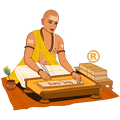











Sunrise07:42 AM
Sunset05:49 PM
Moonrise05:02 PM
MoonsetNo Moonset
Shaka Samvat1939 Hemalambi
Vikram Samvat2074 Sadharana
Gujarati Samvat2074 Saumya
Amanta MonthMagha
Purnimanta MonthMagha
WeekdayMangalawara
PakshaShukla Paksha
TithiChaturdashi upto 11:53 AM
NakshatraPunarvasu upto 09:49 AM
NakshatraPushya upto 07:06 AM, Jan 31
YogaPriti upto 07:57 PM
KaranaVanija upto 11:53 AM
KaranaVishti upto 10:09 PM
Rahu Kalam03:17 PM to 04:33 PM
Gulikai Kalam12:46 PM to 02:01 PM
Yamaganda10:14 AM to 11:30 AM
Abhijit12:25 PM to 01:06 PM
Dur Muhurtam09:43 AM to 10:24 AM
Dur Muhurtam11:22 PM to 12:17 AM, Jan 31
Amrit Kalam01:26 AM, Jan 31 to 02:51 AM, Jan 31
Varjyam04:55 PM to 06:20 PM
Notes: All timings are represented in 12-hour notation in local time of Columbus, United States with DST adjustment (if applicable).
Hours which are past midnight are suffixed with next day date. In Panchang day starts and ends with sunrise.


 Vrishabha 17:55
Vrishabha 17:55 Mrigashira 28:24+
Mrigashira 28:24+

 Karka
Karka Pushya 19:38
Pushya 19:38

 Simha
Simha Magha 15:46
Magha 15:46

 Simha 20:44
Simha 20:44 P Phalguni 14:51
P Phalguni 14:51

 Kanya
Kanya U Phalguni 14:41
U Phalguni 14:41

 Kanya 27:51+
Kanya 27:51+ Hasta 15:16
Hasta 15:16

 Tula
Tula Chitra 16:35
Chitra 16:35

 Tula
Tula Swati 18:32
Swati 18:32

 Tula 14:19
Tula 14:19 Vishakha 20:58
Vishakha 20:58

 Dhanu
Dhanu P Ashadha
P Ashadha

 Dhanu 15:38
Dhanu 15:38 P Ashadha 08:53
P Ashadha 08:53

 Kumbha
Kumbha Dhanishtha 16:59
Dhanishtha 16:59

 Kumbha
Kumbha Shatabhisha 19:02
Shatabhisha 19:02

 Meena
Meena U Bhadrapada 21:39
U Bhadrapada 21:39

 Mesha 26:42+
Mesha 26:42+ Bharani 21:00
Bharani 21:00

 Vrishabha
Vrishabha Krittika 19:33
Krittika 19:33

 Mithuna 28:30+
Mithuna 28:30+ Ardra 12:34
Ardra 12:34

 Simha
Simha Magha 26:30+
Magha 26:30+

 Simha 30:37+
Simha 30:37+ P Phalguni 24:55+
P Phalguni 24:55+In Hindu Calendar, the day starts with local sunrise and ends with next day local sunrise. As sunrise time is different for all cities, Hindu Calendar made for one city is not valid for any other city. Hence it is important to use location based Hindu Calendar, like this website. Further, each Hindu day consists of five elements, which are called angas. These five elements are -
In Hindu Calendar, all five elements together are called Panchang. (In Sanskrit: Panchang = Pancha (five) + Ang (part)). Hence Hindu Calendar which shows all five elements for each day is called Panchang. In South India Panchang is known as Panchangam.
When Hindu Calendar includes Muslims, Sikh, Christian, Buddhist and Jain festivals, including national holidays, it is called as Indian Calendar.